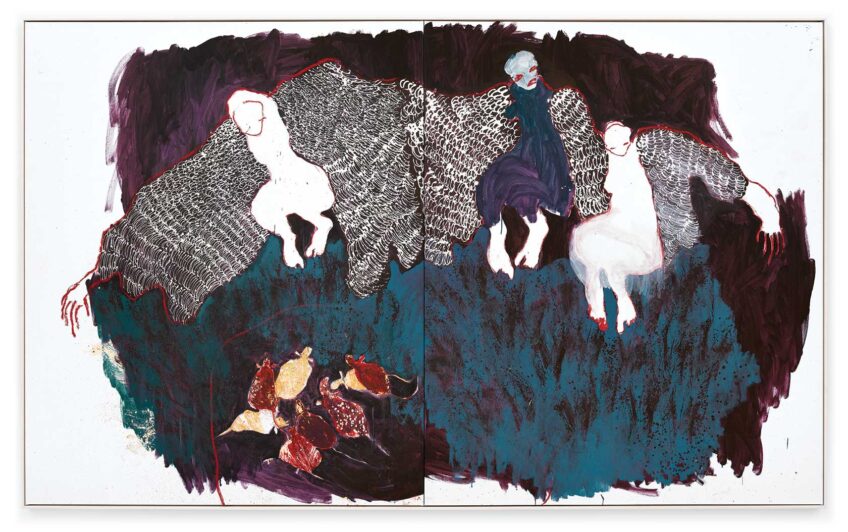Jazz vocalist Cécile McLorin Salvant explores feminism through history, myth

Cécile McLorin Salvant is a jazz vocalist, but her latest album “Mélusine,” pushes the boundaries of the genre. The album features five originals and nine new interpretations of songs sung in a mix of French, Occitan, English and Haitian Kreyòl. Each track tells a feminist reinterpretation of the European folkloric legend of Mélusine.
Mélusine, a beautiful young woman, is bathing with her sisters when a man named Raymondin stumbles across them. Mélusine says she will make him a great lord if they get married, but he must promise to never see her on Saturdays. All goes well for a time until Raymondin’s brother says Mélusine must be unfaithful. Raymondin bursts in on her on Saturday to find that she temporarily has the lower body of a snake. She turns into a dragon and flies away.
“It is an ode to solitude, and self-reliance and being adaptable — in this case by making water out of sand,” says Salvant. “The thorny devil drinks dew from sand in the desert. I often write songs about yearning for another, about unfulfilled desires. This song is about pulling from within yourself all that you need.”

Salvant will perform selections from her album “Mélusine” at the Sanders Theater in Harvard Square on Friday, Feb. 2. PHOTO: KAROLIS KAMINSKAS
The legend probes female power shrouded in mystery, trust between partners and what happens when boundaries are broken. Salvant interprets the story not just through its European roots but also through similar multicultural stories like the Haitian voodoo tale of Damballah and the spirit Ayida-Wedo.
“‘Mélusine’ reveals Salvant’s profound engagement with the archives of the fantastical in history and her phenomenal capacity to reanimate diverse musical genres — from baroque to 20th-century popular song — in a relationship of mutual enhancement,” writes legendary political activist Angela Y. Davis in an essay on Salvant.
The artist is a 2020 MacArthur Fellow and three-time Grammy Award winner. She often uses history and myth to examine women’s constraints in a patriarchal structure. Musically, she draws from blues, folk, musical theater and even vaudeville for a unique blending of genres.
Salvant will perform selections from “Mélusine” at the Sanders Theater in Harvard Square on Feb. 2 in collaboration with Celebrity Series of Boston.
Though Salvant reaches back into history and cultural tales for her musical fodder, she does so as a way to interpret contemporary life and feminism.
“Her interest in history is also in a history that has not yet unfolded,” writes Davis. “And she recruits fantastical dimensions of our historical past in order to forge sonic echoes of more habitable possible futures.”







